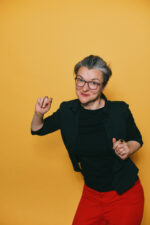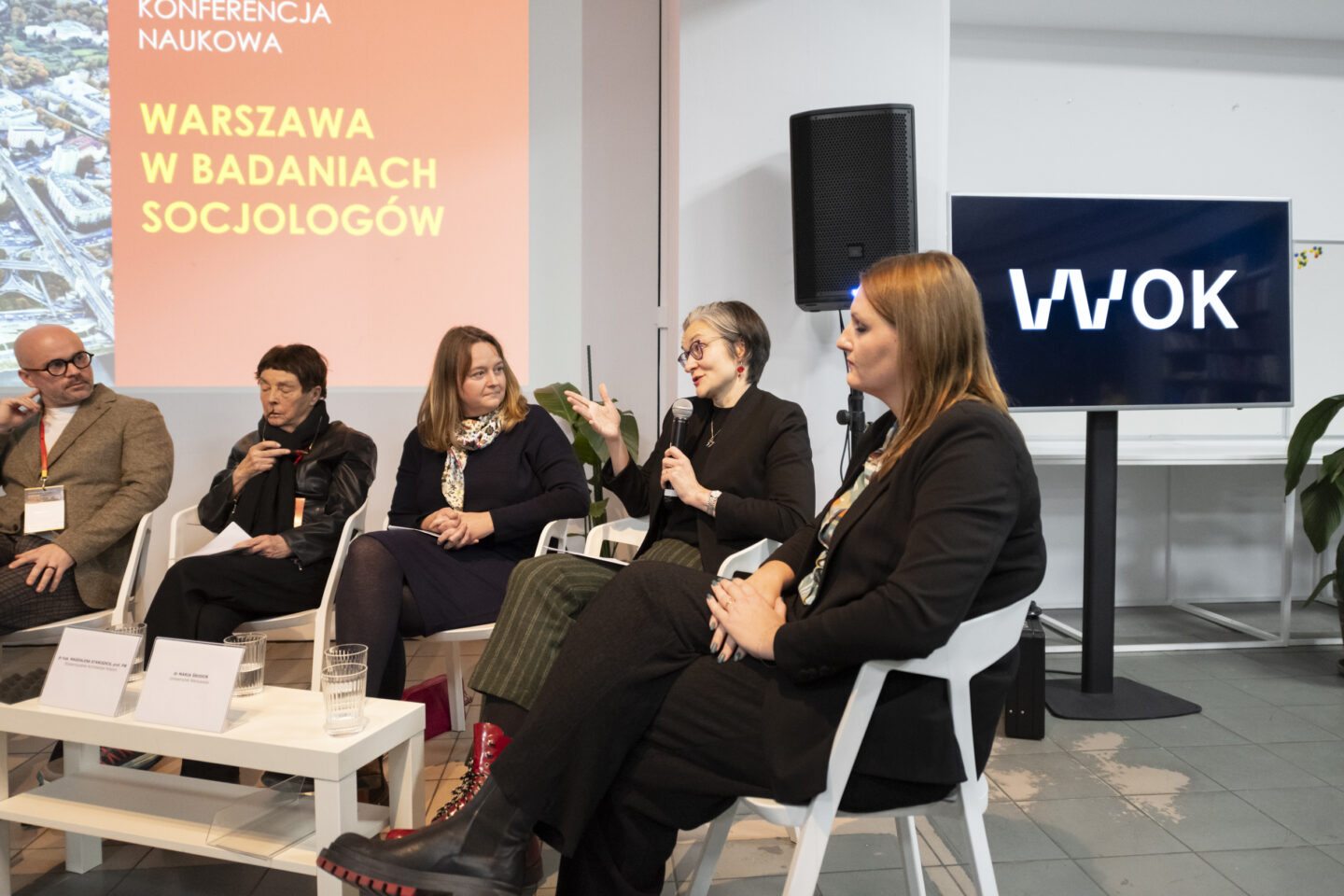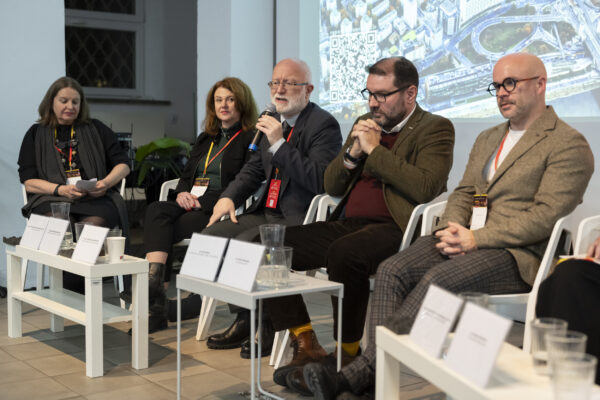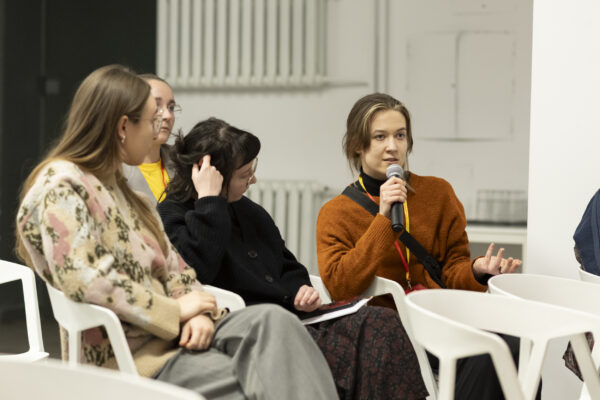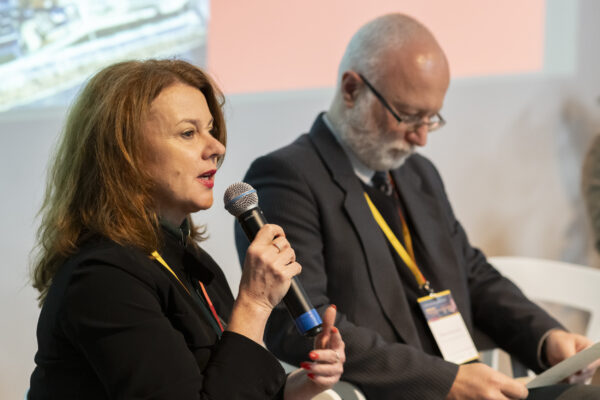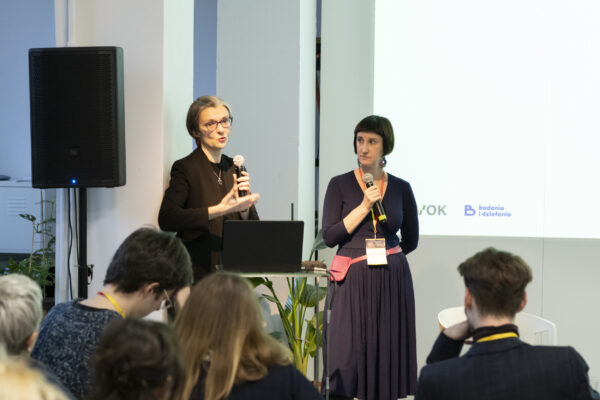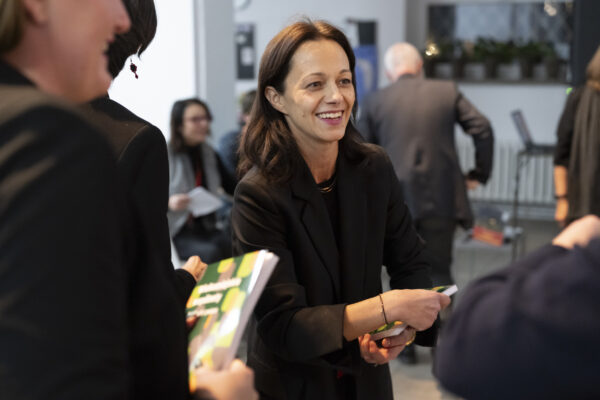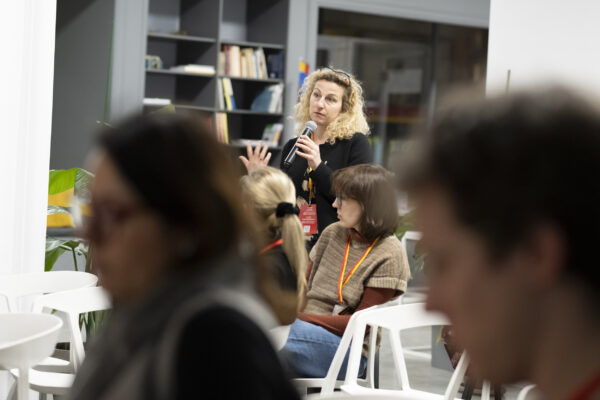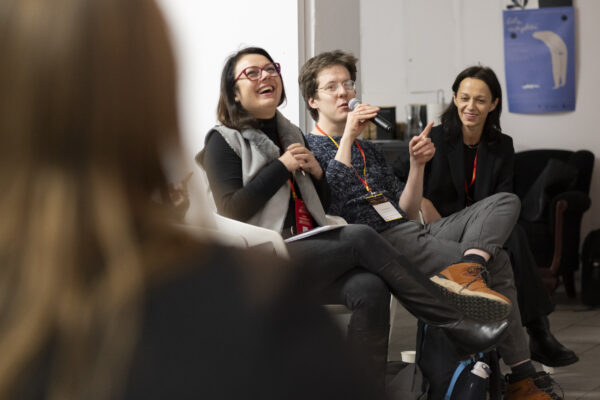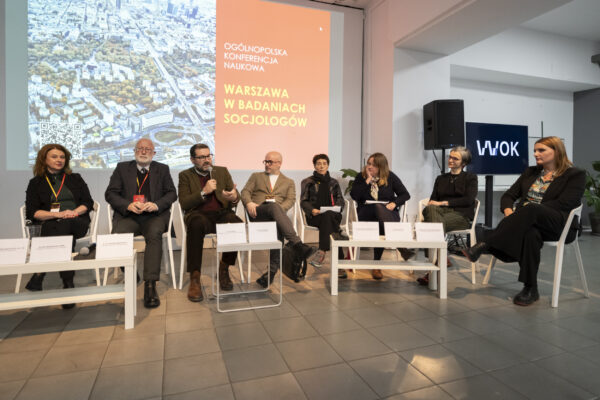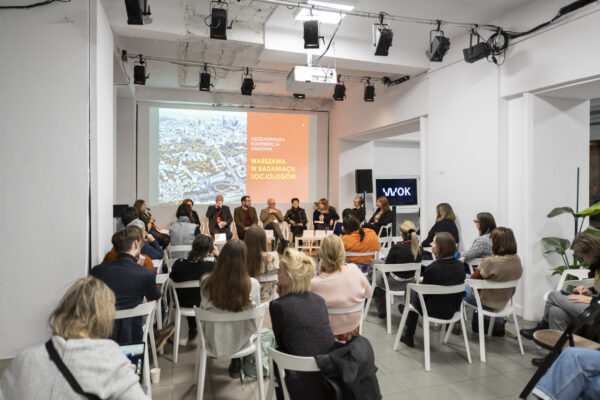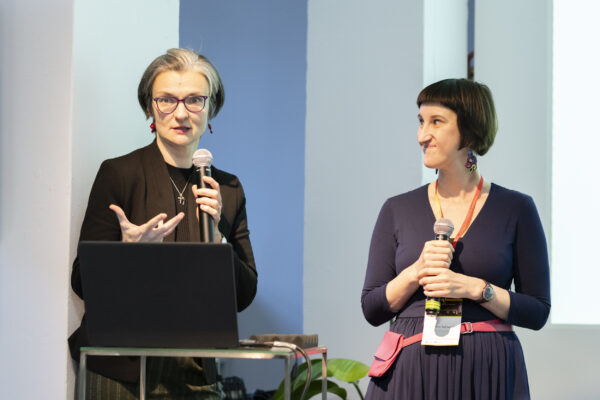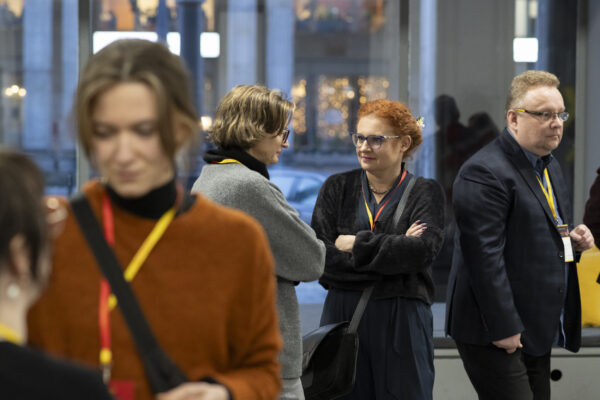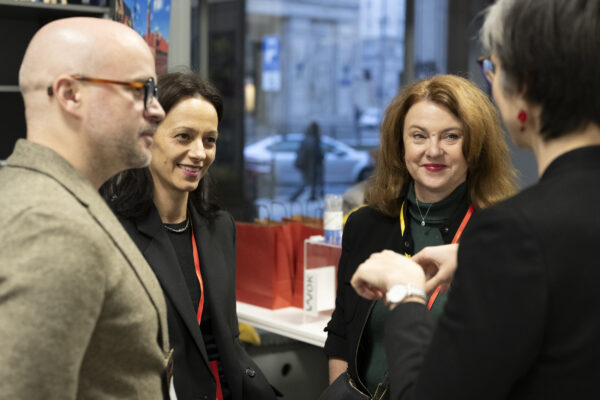Warsaw in Sociological Studies
Warsaw is a vibrant agglomeration and a hub for events that reflect social change and public sentiment, and we have chosen it as the main theme of our research. On 29 and 30 November 2023, academics and researchers came together to create a polyphony about the city and its inhabitants. This was the first conference since 2019 to focus primarily on issues related to the capital. The speakers represented both the younger and older generations of researchers and came from different academic centres. The conference sessions were be held on the first day at the Staszic Palace (Nowy Świat 72) and on the second day at the Warsaw Observatory of Culture.
The submitted papers reflected the current interests of scholars studying Warsaw, and the topics they address have been grouped into thematic sections that allow us to look at the Polish capital from different angles and perspectives. Sociologists studying the identity of Warsaw’s inhabitants were particularly interested in how identity is affected by social divisions, but another important theme that dominates their work was the actual situation of foreigners living in Warsaw. Many of the papers dealt with the issue of space, both in terms of urban space, including architecture, and in terms of housing opportunities and, in particular, housing policy.
WOK hosted the second day of the conference. During the sessions held, we presented the results of our original study on cultural education in Warsaw. The session was conclude with a transdisciplinary panel discussion. We are also planning to publish the proceedings of the conference in the form of a monograph that will showcase the diversity and uniqueness of our city.
Conference program
Warsaw in Studies Scientific Conference
29–30 November 2023
Day 1
Pałac Staszica
Nowy Świat 72, room 300 (im. Erazma Majewskiego), 3rd floor
9:00 Registration
10:00–10:30 Conference opening
10:30–13:00 Part 1: INHABITANTS AND THEIR LIVES
Chair: Rafał Wiśniewski, National Centre for Culture Poland
Karolina Thel, Academy of Fine Arts in Warsaw
Conflict vs Urban Visions
Beata Gawryszewska, Warsaw University of Life Sciences
We like it! Warsaw’s unofficial greenery in the eyes of their users
Marcin Choczyński, Rev. Sławomir H. Zaręba, Cardinal Stefan Wyszyński University
The inhabitants of Warsaw as portrayed by the Department of Measurement of Polish Attitudes and Values (PPPiW)
Kacper Leśniewicz, SWPS University/Technische Universität Chemnitz
Us vs Them – The symbolic boundaries of the people’s and middle classes in Warsaw
Katarzyna Archanowicz-Kudelska, Warsaw School of Economics/ University of Warsaw
“When I drive my car in the morning, despite the traffic jam, despite the fog, I look at my dear city whose air gets worse and worse every year”
Discussion
13:00–14:00 Lunch
14:00–16:30 Part 2: FOREIGNERS, MIGRANTS
Chair: Magdalena Dudkiewicz, University of Warsaw
Tatiana Kanasz, The Maria Grzegorzewska University
Labour migration of Belarusians in Warsaw on the example of selected media texts
Izabela Grabowska, Agata Jastrzębowska, Koźmiński Academy
Resources of Varsovians with migrant background in a unique social survey entitled My Migration with feedback for respondents
Jakub Stepaniuk, University of Graz
The Turkish community in Warsaw
Joanna Stepaniuk, Stefan Batory Academy of Applied Sciences
Who are the Ukrainian female migrants living in Warsaw and what they do for a living – Analysis of own research
Aleksandra Winiarska, University of Warsaw
Equal access for foreigners to public services in Warsaw before and after February 2022
Discussion
16:30–16:45 Closing of the first day of the conference
Day 2
Warsaw Observatory of Culture
Marszałkowska 34/50
10:00–10:10 Opening of the second day of the conference
10:10–13:00 Part 3: SPACE AND HOUSING
Chair: Katarzyna Górniak PhD, University of Warsaw
Sara Bojarczuk, Barbara Jancewicz, University of Warsaw
Foreigners in Warsaw: Discrimination and hindrances in access to apartment lease opportunities
Justyna Orchowska, University of Warsaw
The middle class and housing insecurity. The experiences of the inhabitants of Warsaw
Łukasz Drozda, University of Warsaw
Diluting post socialism. The political economy of Warsaw’s housing development companies
Barbara Audycka-Zandberg, University of Warsaw
Institutional lease in Warsaw: The trajectories of development
Ewa Majdecka, University of Warsaw
Producing space in the Old City and New City – From post-war reconstruction to modernity
Discussion
13:00–13:45 Lunch
13:45–15:30 Part 4: EDUCATION AND YOUTH
Chair: Olga Wysocka PhD, Warsaw Observatory of Culture
Bartosz Łukaszewski, Pontifical University of John Paul II in Kraków
The youth of Warsaw and their relationship with the surroundings – Risk or growth?
Robert Nowecki, University of Warsaw
Election simulations in Warsaw as an example of evolution of opinions of the young generation inhabiting the capital city and suburbs. Sociology, ław, political science.
Konrad Ryszard Wysocki, University of Warsaw
“It was hard to imagine that someone could handle this… we wanted it to be ours” – Warsaw’s youth festivals as a platform for cultural practices
Radosław J. Potrac, Friends of Warsaw Association, Gwara Warszawska Association, Teacher of the Year 2023
The immaterial cultural heritage of the Siren City. Education of the past and the future
Magdalena Tędziagolska, Bania i Działania
Cultural education of Warsaw
Discussion
15:30–17:00 Part V: IS WARSAW A SPECIAL CITY?
Chair: Małgorzata Bakalarz-Duverger PhD, Warsaw Observatory of Culture, Barbara Lewenstein PhD, University of Warsaw
EXPERT PANEL DISCUSSION:
Invited speakers: Aldona Machnowska-Góra (City Hall), Mikołaj Madurowicz (Centre for Studies on the Culture of Warsaw), Olaf Osica (City Hall), Kuba Piwowar (SWPS University), Magdalena Staniszkis (Warsaw University of Technology), Maria Środoń (University of Warsaw), Marta Żakowska (Museum of Warsaw, Cities Magazine)
17:00–17:15 Closing of the conference





